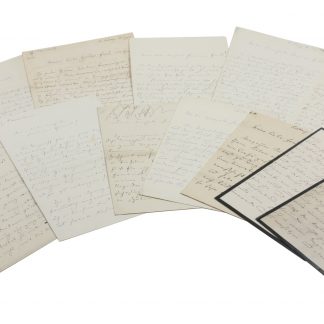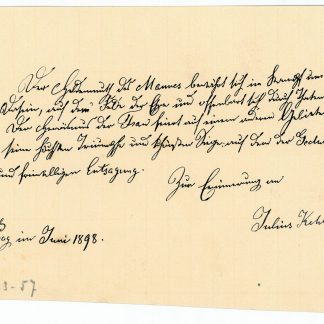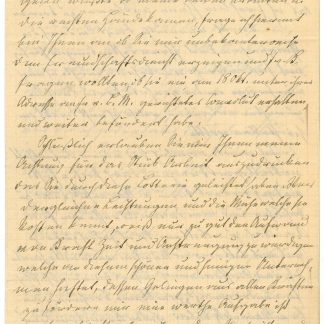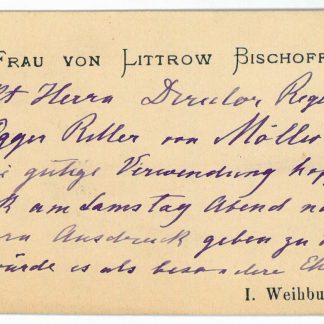Autograph letter signed.
4to. 4 pp. on bifolium, of which 2 pp. are holograph.
€ 550,00
Long and intimate letter to a confidant in Paris, touching on various topics. Written in a secretary's hand, the first part of the letter mostly concerns the management of a trust fund for the princess's children by a M. Masselin which also involved the recipient. Constance de Salm complains about an apparently risky and unauthorized investment and seeks the recipient's advice: "Je viens de lui écrire pour savoir ce qu'il en est ; mais, dans tous les cas, approuvez vous, Monsieur, un tel placement ? Croyez vous qu'il offre la garantie et la sûreté nécessares pour une tutele [!] ? Enfin, si, par hasard Mr Masselin n'a point de procuration, ce que nous croyons, ne serait-il pas responsable des suites fâcheuses que pourrait avoir ce placement ?".
The princess then briefly comments on the scandalous trial five years after the murder of the Hellenist and political writer Paul Louis Courier on 10 April 1825. Courier's gamekeeper Louis Frémont had already been charged with the murder in 1825 but was unanimously acquitted. In 1829, a new witness accused Frémont and other servants of commiting the crime, which led to a second trial. This time, Frémont confessed his crime but could not be convicted, given his previous acquittal. Furthermore, Courier's wife Esther Etienne Herminie was accused of having conducted an affair with one of the suspects, was tried and likewise acquitted. Constance de Salm expresses her surprise that "all suspects were declared innocent" and asks the recipient to tell her what the "general opinion" was, especially concerning Mme Courier, whose decision to remain absent from the trial she criticizes: "Mme Courier est dans une bien fâcheuse position ; je ne puis comprendre, ni approuver son absence qui achève de la perdre dans l'opinion publique. Rien ne fait plus de mal à penser quand on a connu son si digne père et son mari".
The second part of the letter is written in Constance de Salm's own hand, as she wishes to thank the recipient personally for his advice and for news from Paris. He is all the more important to her as her "old friends disappear every day". Of those friends, she mentions the politician Louis-Jérôme Gohier who died on 29 May 1830: "au moment où je me disposais à lui écrire". Finally, the princess comments on the political situation, predicting that the revolutionary sentiment in France will reach Germany: "Il s'y est montée la défense éclairée du droit du peuple et des idées libérales, tout s’est passé là comme en France. L'esprit du siècle est le même partout".
Stronger browning and tears to the folds.









